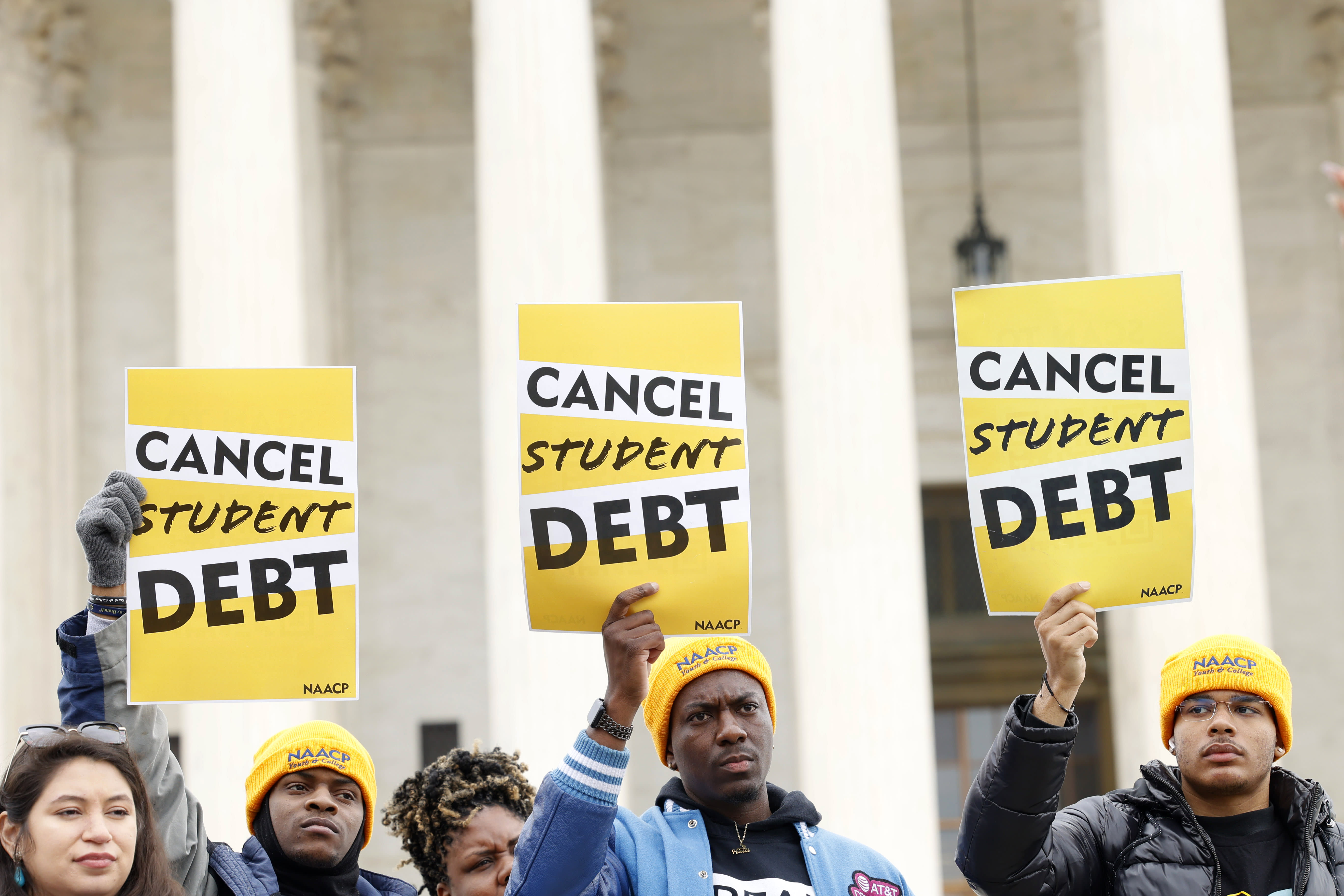The U.S. Supreme Court.
Douglas Rissing | Istock | Getty Images
Justices to consider if president can cancel debt
At an estimated cost of about $400 billion, Biden’s plan to forgive student debt is one of the most expensive executive actions in history.
The justices are likely examining whether or not the president has the power to implement such a sweeping policy.

The Biden administration insists that it’s acting within the law, pointing out that the Heroes Act of 2003 grants the U.S. secretary of Education the authority to make changes related to student loans during national emergencies. The country had been operating under an emergency declaration due to Covid-19 when the president rolled out his plan.
Opponents of the debt jubilee say the administration is incorrectly using the law, which was passed after the Sept. 11 terrorist attacks.
“It is not an across-the-board, get-out-of-debt provision that an administration can invoke at will,” the six Republican-led states note in their lawsuit against the plan. “It is not an across-the-board, get-out-of-debt provision that an administration can invoke at will,” the six Republican-led states who brought one of the lawsuits note against the plan.
Legal experts say forgiveness plan faces tough odds
Gregory Caldeira, a political science professor at Ohio State University, told CNBC before the oral arguments that he wouldn’t be surprised if the highest court rules against Biden.
“The court’s conservatives have been very aggressive in striking down the decisions of Congress and the president,” Caldeira said.
For a number of reasons, Dan Urman, a law professor at Northeastern University, also predicts that student loan forgiveness won’t survive the Supreme Court.
In an earlier interview, he said that the conservative justices believe government agencies exert too much authority and “violate the separation of powers.” In addition, he said, the concept of loan forgiveness seems to run counter to their notions of individual responsibility.
Striking down forgiveness will add to growing skepticism that the conservative justices vote for conservatives, and the liberal justices vote for liberals.
Dan Urman
law professor at Northeastern University
Such a politically fueled decision, however, is likely to further damage the public’s perception of the judicial branch, Urman said.
“Striking down forgiveness will add to growing skepticism that the conservative justices vote for conservatives, and the liberal justices vote for liberals,” Urman said.
Just 25% of Americans have confidence in the Supreme Court, a Gallup poll found last summer.
Still, the justices can issue surprising decisions and legal experts said Solicitor General Elizabeth Prelogar, the lawyer who argued on behalf of the Biden administration and its student loan forgiveness plan during oral arguments, did an exceptionally good job.
Fordham law professor Jed Shugerman had tweeted after the February arguments that he was “struck by SG Elizabeth Prelogar’s brilliant performance.”
“She may have snatched victory from the jaws of defeat,” Shugerman wrote.
What’s at stake for borrowers
The outcome of the justices’ decision could have dire consequences for families, Thomas Gokey, co-founder of the Debt Collective, a national union of debtors, said in a previous interview.
“For many people, this is life and death,” Gokey said. “What’s at stake is being forced to choose between paying for student loans or being able to buy groceries, make rent and pay medical bills.”
If every eligible borrower applies for the relief, Biden’s student loan forgiveness plan is estimated to wipe out $400 billion in federal student debt, according to the Congressional Budget Office. That would reduce the country’s $1.7 trillion outstanding education debt balance to $1.3 trillion.
Roughly a third of those with federal student loans, or 14 million people, would have their balances entirely forgiven by the president’s program, according to an estimate by Kantrowitz.
Around 37 million people would be eligible for some loan cancellation, Kantrowitz estimates — up to $20,000 if they received a Pell Grant in college, a type of aid for low-income families, or as much as $10,000 if they did not.

